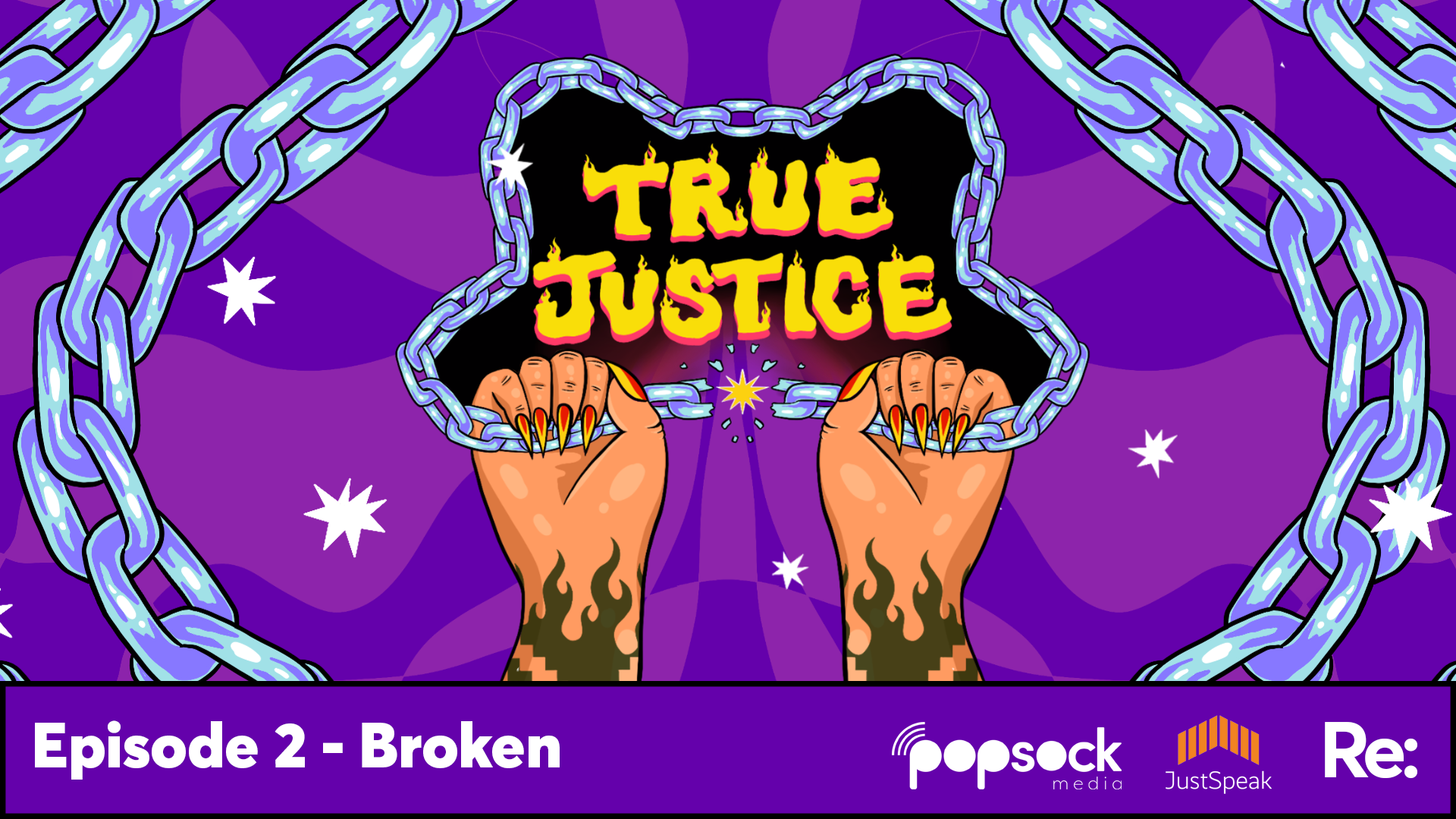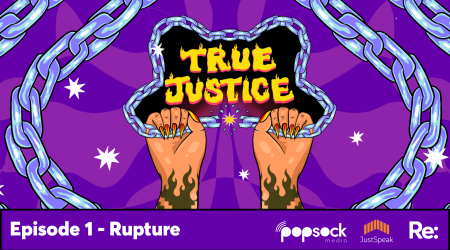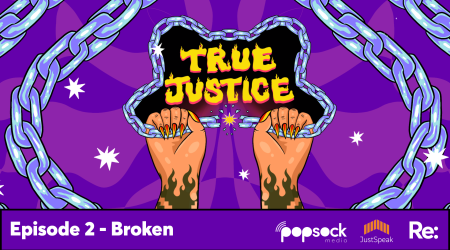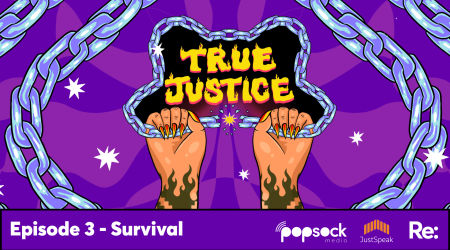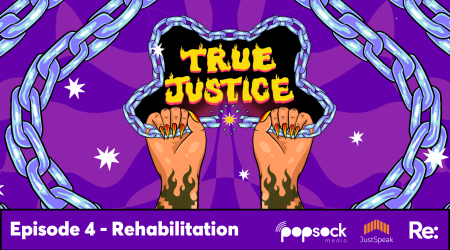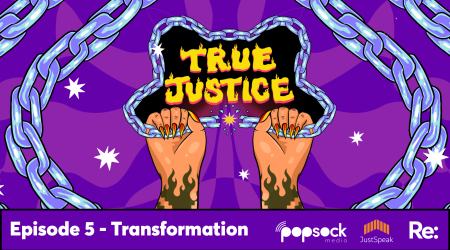What it’s actually like inside prison, and how you survive | True Justice
By JustSpeak and Popsock Media
New Zealanders love true crime. But real life isn’t that straightforward. True Justice is a five-part podcast series that shares the stories of those who have been through our prisons, and advocates for a more just justice system in Aotearoa.
In Episode 2: Broken, we hear about the history of prisons in New Zealand, what day-to-day life is like on the inside, and how you survive.
In prison, you can't show that you're sad or upset. “The only thing you can show,” says Blain, one of the interviewees in True Justice, “is if you're angry, cause that's the only thing that'll get you not beaten up.”
Blain was struggling with meth addiction. He was living in Melbourne when he got hooked, and after he came back to New Zealand in November 2014, things spiralled really quickly.
“I was caught in an operation for selling methamphetamine. And I was in jail in June. And yeah, that's basically where my demise kind of started.”
It was Blain’s first time in prison so he was pretty freaked out, but he knew not to let on.
“I just put a mask on the whole time I was in prison. I was clean off drugs and alcohol, but I wasn't clean off my behaviours, you know? I was trying to be someone I wasn't even though I was just like a scared little boy really.”
This is something you hear quite a lot when talking to prisoners.
“It's just putting on a mask, putting on a front, you can't be walking around looking like you want to cry or whatever,” says Rangi, another interviewee.
“You have to leave that at the door. Leave that at the gate.”
You never feel safe in prison, Rangi says. “You have your guard up all the time. Something can pop off at any time. The worst thing you can do is try to settle in, because at the flip of a switch you can be shifted from one end of the country to the other. Or a person that you thought was your mate, can just knock you over for something so minimal, like an apple or something. Yeah, fighting over a sandwich or pushing in the line.”
That’s because there’s “a lot of other underlying issues there”, he says.
According to Corrections, 91% of people in prison have been diagnosed with a mental health disorder, a substance use disorder or a traumatic brain injury at some stage in their lives.
And if it was this tough navigating this super macho space for guys like Rangi and Blain, imagine what it felt like for Olivia, who is a trans woman.
“You're constantly having to watch yourself,” she says. “I felt unsafe, I suffered from mental illness, I ended up with depression and anxiety. I already had, being transgender, gender dysmorphia, where I struggled to accept my body. And then they would strip search you constantly.”
“So whenever you'd go to another unit, there would be random strip searches, and they would always single out people that obviously had issues, or they thought that they would get some type of entertainment out of.”
Another issue was the showers were open. So when it was shower time, Olivia says, unless you were prepared to shower with absolutely everybody, you went without.
“I begged to be able to have my shower alone, or when the rest of the prisoners went to the yard.”
She says she was occasionally able to get the privacy to shower - but only when there were enough guards on.
True Justice reached out to Serco, the private security company who ran Mt Eden prison at the time Olivia was there. They were unable to comment on specific allegations, but say the issues alleged in this podcast would not be acceptable in the prison they run now in South Auckland, as they are contrary to their values, code of conduct and expectations of staff.
They said a complaint of this nature would be treated as a very serious matter.
To hear more stories from people who’ve been to prison in New Zealand, listen now to True Justice, a five-part podcast series that shares the stories of those who have been through our prisons, and advocates for a more just justice system in Aotearoa.
Where to get help:
- 1737: The nationwide, 24/7 mental health support line. Call or text 1737 to speak to a trained counsellor.
- Suicide Crisis Line: Free call 0508 TAUTOKO or 0508 828 865. Nationwide 24/7 support line operated by experienced counsellors with advanced suicide prevention training.
- Youthline: Free call 0800 376 633, free text 234. Nationwide service focused on supporting young people.
- OUTLine NZ: Freephone 0800 OUTLINE (0800 688 5463). National service that helps LGBTIQ+ New Zealanders access support, information and a sense of community.
- Alcohol Drug Helpline: call 0800 787 797 or free text 8681 for a free, confidential text conversation
- Alcohol Drug Māori Helpline: 0800 787 798 for advice and referral to kaupapa Māori services
- Alcohol Drug Pasifika Helpline: 0800 787 799 for advice and referral to services developed for Pacific people
- Alcohol Drug Youth Helpline: 0800 787 984 for advice and referral to services for young people
